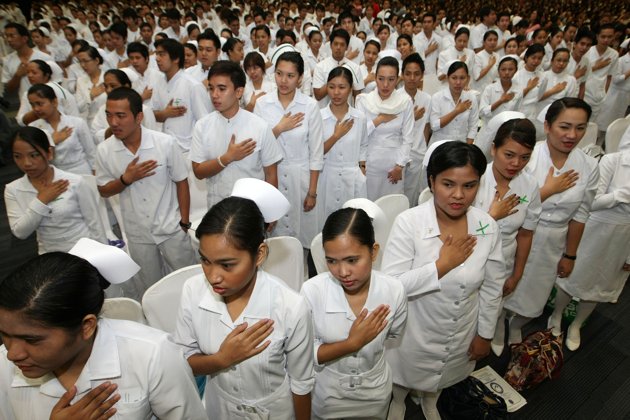"Let me guess. Nursing?"
Whether from the lips of family friends or relatives, I have heard this question and every variation of it. I bear the question with no scorn. My face does not flare up in offense, my voice does not become needles ready to deflate their hopes. In fact, with playful amusement, I expect the question. But, I can’t say they exactly expect my answer.
“Actually, I’m an English major.”
A few listeners accept it, embracing the potential of this unfamiliar path. The vast majority, though, cannot understand. Some try to hide their confusion. Others are not so delicate. The wide eyes brimmed with concern, the smirks laced with disapproval and – my personal favorite – the blunt, slightly outraged “But, WHY?”s. There are moments when conversations like these make me upset, but on most occasions I know where they are coming from.
I am twenty years old. I’m in college, working towards a degree to secure myself a future. These descriptions can be applied to anyone. They don’t indicate a pressure to enter any specific profession, that is, until I add one detail: I'm Pilipino. And immediately, the hues of the words change and my destiny becomes predetermined. My mother is a nurse manager, my father a hospital lab technologist. Both have dedicated their careers to medicine. And most of my titas and titos? Many of my older cousins? A majority of my Pilipino friends? They have chosen the same path. I know what expectations my race affords me, the footsteps each of my family members longs for me to follow in. So when I reveal that I am not pursuing medicine, I cannot blame the on-lookers and eavesdroppers for their puzzled glances.
Pilipino Nurses in the United States
If my experience as a Pilipina English major is not proof enough that most Pilipinos become nurses, I pose to you a challenge. Walk into any hospital, emergency room or medical lab and tell me that a handful or two of the staff is not from the Philippines or of Pilipino descent. It will be a challenge, I can almost assure you. But why is this? Why do Pilipinos seem to dominate the world of medicine in America? This trend is nothing new, actually. It dates back to 1903, when the Pensionado Act sent Pilipino nurses to the U.S. as government-funded scholars to remedy the deficit of healthcare professionals in the States. Four decades later, the Exchange Visitors Program of 1948 welcomed another wave of nurses from the Philippines. And only 17 years later, the liberalization of U.S. immigration laws allowed nurses to travel from the motherland to the States on tourist visas and adjust their status upon arrival. For the Pilipino, then, nursing has been more than just a noteworthy profession but a chance to come to the United States, to start anew while providing for their families back home.

The Road Less Traveled By
Because of this history, nursing, for many Pilipinos, is synonymous with the sweet aromas of opportunity, familial prosperity and a passion to help others. So, it is no wonder why lab coats hang from our laundry lines and stethoscopes hide in our parents’ closets. Nursing is a road that a century’s worth of Pilipino men and women have walked and whose descendants continue to walk today. So where does that leave me? Where does that leave others like me whose ragged edges do not fit into the precut spaces of this “become a nurse” plan?
It is a common misconception among older Pilipinos to think that success can only be achieved in the medical field, while most other pursuits lack security. They don’t realize that an English degree is the leading degree in communications, business and international affairs. They tend to ignore that most liberal arts degree-holders possess skills in critical thinking, creativity, problem solving, and written and oral communication, abilities employers hunger for. Not to mention, those who have made strides in the Pilipino community using a pen and not a syringe - names such as Luis Francia, author of Eye of the Fish: A Personal Archipelago, Jose Vargas, journalist, filmmaker and founder of Define America, and Sarah Gambito, a published poet and winner of the Barnes & Nobles Writer for Writer Award. The options are endless, yet many traditional Pilipinos forget this. Therefore, it is the mission of Pilipino non-nurses to rebut the sneers and smirks of this skeptical older generation. Not with snide remarks or rolling eyes, but with passion and triumph. And as the amount of Pilipinos pursuing other interests grow, our predecessors will learn that we do not have be in a hospital to know the meaning of success, that “the road less traveled by” is one worthy of exploration and respect.
"I shall be telling this with a sigh Somewhere ages and ages hence: Two road diverged in a wood and I- I took the road less traveled by And that has made all the difference"
The Road Not Taken, Robert Frost
Photo Credit: Yahoo Philippines News


